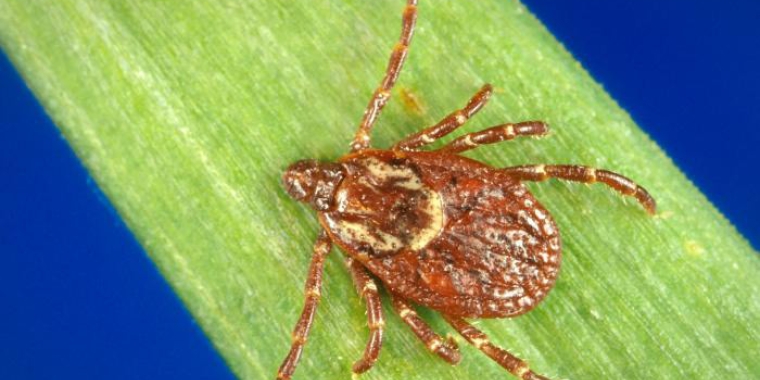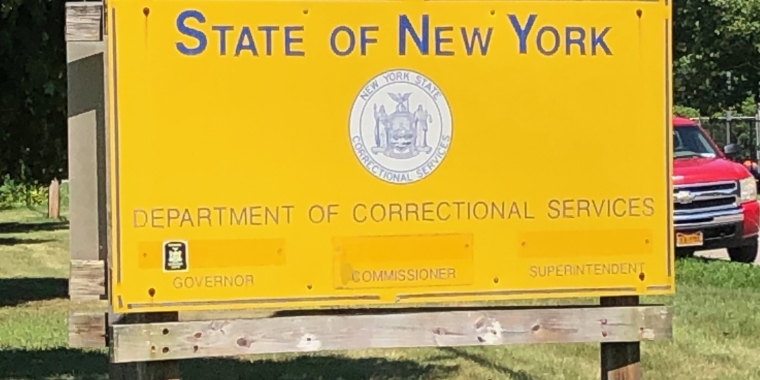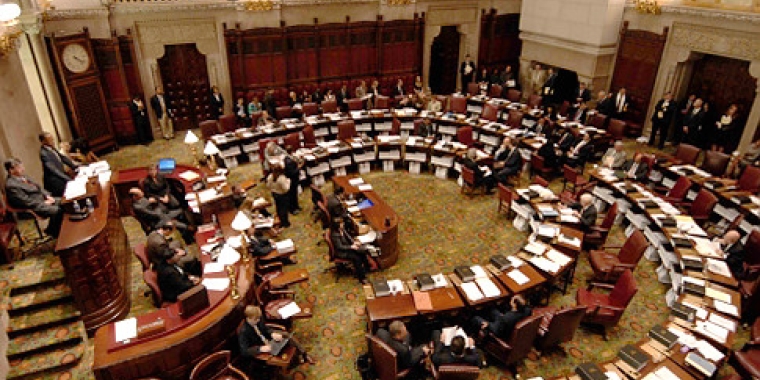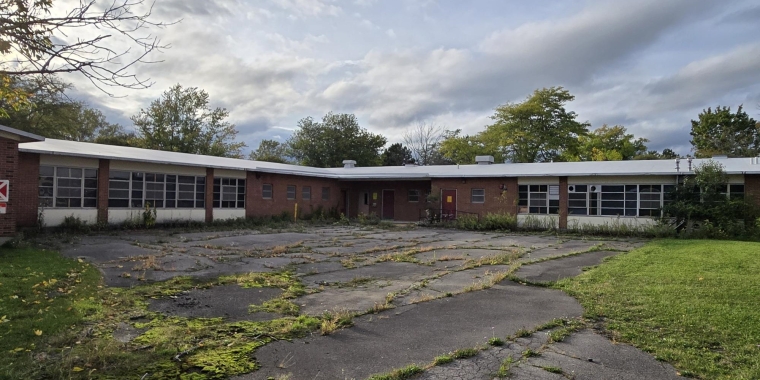
Senator Gallivan Supports Increased Funding to Combat Lyme Disease
Jim Ranney
March 5, 2019
-
ISSUE:
- Lyme and Tick-Borne Diseases

Senator Patrick M. Gallivan (R-C-I, Elma) joined several of his Senate colleagues this week in calling for more funding in this year’s State Budget to combat the devastating effects of Lyme and tick-borne diseases (TBDs). The Senators say funding for research, education and prevention initiatives must be a priority in budget negotiations.
“Over the past several years we have seen Lyme disease spread across the state, threatening the health and safety of residents,” Senator Gallivan said. “Despite the state’s fiscal challenges, we must ensure that funding for research, prevention and education remains a priority in this year’s budget.”
“Knowing how truly life changing these diseases can be, and how rapidly they’re spreading across the state, the fact that this year’s Budget Proposal fails to include any significant funding to prevent their spread and protect New Yorkers is unfathomable,” said Senator Sue Serino.
New Yorkers from Buffalo to Long Island, and all regions in between, are suffering from the devastating effects of Lyme and tick-borne diseases (TBDs).
In recent years, the State Senate has led the way in securing funding in the State Budget to advance research, education and prevention initiatives across the state. Since taking office, Senator Gallivan and his Senate colleagues have been successful in securing $2.6 million to fund critical initiatives aimed at raising awareness and better protecting New Yorkers against the scourge of Lyme and TBDs. Last year alone, they were able to secure an unprecedented $1 million to build on important progress and were encouraged when the Governor announced the implementation of a statewide action plan to combat the tick population and better protect New Yorkers.
However, this year when the Executive Budget Proposal was released, there was no real funding included to combat the spread of Lyme and TBDs.
In response, Senator Serino launched “Let’s Talk Ticks!” an educational campaign aimed at raising awareness in Albany about the importance of continuing to focus intently on this serious issue. Lawmakers, and members of their teams, had the opportunity to hear from researchers who are committed to tackling the TBD epidemic, from patients who have experienced the devastating diseases first-hand, and from experts who are working to protect New Yorkers. Lawmakers also heard updates on important projects that have been funded through the state’s budget process in the past.
The event included presentations by area experts including Holly Ahern, Professor of Microbiology at SUNY Adirondack; Dr. Matt Frye, a Community IPM Extension Area Educator from Cornell’s College of Agriculture and Life Sciences; Dr. Rick Ostfeld of the Cary Institute of Ecosystem Studies; and Jill Auerbach, Chair of the Hudson Valley Lyme Disease Association.
During the event, Ahern emphasized the size and scope of the problem noting that 400,000 new cases of Lyme disease occur each year in the United States, a quarter of which occur right here in New York. She also noted that Lyme disease is the second most common form of infectious diseases found in the U.S. behind only chlamydia, and she argued that because the only test available for Lyme often presents false negatives, the number of Lyme infected patients could even out-pace that disease.
"Lyme disease and other tick-borne diseases take a terrible toll on people who aren't diagnosed because the lab tests are inaccurate, and then receive no medical treatment because they can't be diagnosed. These people end up with chronic, debilitating illnesses that leaves them unable to work or go to school,” Holly Ahern said. “Funding from the New York Senate Task Force has allowed us to make significant advances in tick-borne disease research in New York, including tracking the expansion of these diseases into the Adirondacks, and bringing us closer to the goal of an accurate diagnostic test for Lyme disease. We need to keep the momentum going."
Dr. Rick Ostfeld said, “New York Senate Task Force funding has helped support The Tick Project, a five-year study testing environmental interventions that we expect will reduce ticks and tick-borne diseases in residential neighborhoods. Now is not the time to roll back investments in prevention.”
-30-
Share this Article or Press Release
Newsroom
Go to Newsroom


